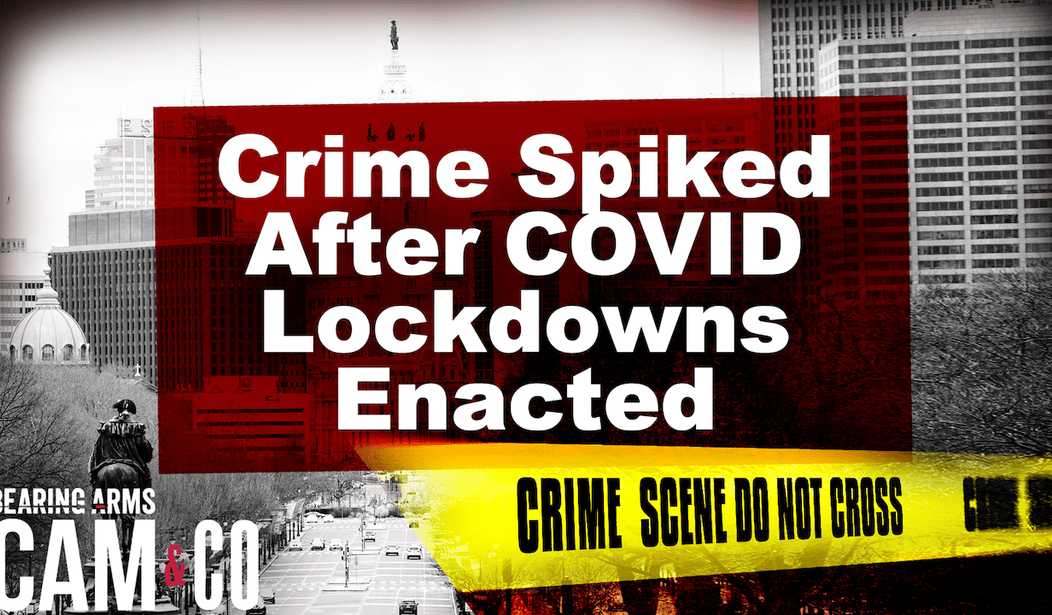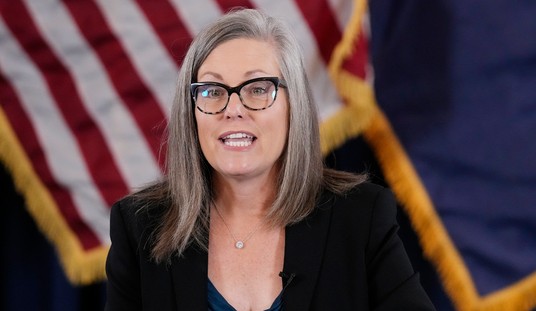We know, of course, that violent crime soared over the course of 2020 in most U.S. cities. The unresolved question, at least for some folks, is why the number of shootings, carjackings, homicides, and many other violent crimes rose so rapidly.
Gun control groups like Moms Demand Action and Everytown for Gun Safety have a vested interest in arguing that the record number of gun sales is contributing to or even chiefly responsible for the rise in the crime rates, but on today’s Bearing Arms’ Cam & Co. we take a look at new research from Philadelphia that suggests the COVID-19 lockdowns are to blame, not the increase in retail gun sales.
The study conducted by Dr. Jessica Beard and several of her colleagues examined the number of shootings that took place every week in Philadephia between 2016 and the end of 2020. Specifically, the researchers were looking to see what happened after the COVID restrictions were first put in place in March, what happened after the death of George Floyd in Minneapolis at the end of May, and what happened in Philly when some of the COVID closures began to be lifted in the city in late June. What they found is striking.
During the 256 weeks included in the study, 7159 individuals were shot in Philadelphia, which breaks down to a mean (SD) of 24.9 (7.1) individuals shot per week during the 219 weeks before enactment of COVID-19 containment policies and 46.4 (13.5) individuals shot per week in the 37 weeks after containment policy enactment. The ARIMA model that best fit this time series included local autoregressive and moving average terms and a gradual permanent association beginning the week COVID-19 containment policies were enacted. The killing of George Floyd and the partial lifting of containment policies were not independently associated with any changes in shooting incidence.
The rate of shootings nearly doubled after the COVID-19 closures were put into effect, and never really declined afterwards. The riots and unrest in Philly following Floyd’s death did not dramatically increase the amount of violence on city streets, but neither did the partial relaxing of the COVID-19 containment policies.
Beard and her colleagues suggest that the violence continued at an increased pace because the economic impact of the COVID closures continued even after “non-essential” businesses began to re-open.
Social and economic distress may account for the observed associations. In Philadelphia, firearm violence incidence has been empirically tied to poverty and structural place-based economic disinvestment.6 The sustained nature of the increase in firearm violence observed in this study may be related to longer-term effects of COVID-19 containment policies, including intensifying unemployment and poverty, particularly in lower-income Philadelphia communities where shootings are most concentrated.
I’m sure that had some impact, but I’m surprised that the researchers didn’t talk about how the COVID-19 containment measures wreaked havoc on policing and the criminal justice system in Philadelphia. Along with the closures of those businesses declared non-essential, Police Commissioner Danielle Outlaw shut down the city’s Gun Permit Unit for months, which prevented legal gun owners from acquiring their license to carry. While the city was making it impossible for residents to obtain a carry license, Outlaw declared that Philly police would be taking a pause in arresting individuals charged with a variety of crimes. As the Philadelphia Inquirer reported last March:
One day after Philadelphia courts closed until April 1 to limit the spread of the coronavirus, Police Commissioner Danielle Outlaw notified commanders Tuesday that police will be delaying arrests for nonviolent crimes, including drug offenses, theft, and prostitution.
The announcement came in an internal memo outlining protections including social distancing during roll call and emphasizing the importance of the public’s safety, as well as the safety of officers. A boldfaced, yellow-highlighted paragraph notes that “if an officer believes that releasing the offender would pose a threat to public safety, the officer will notify a supervisor,” who would decide whether the suspect should be held.
Not only were some arrests suspended, a number of individuals held in the city jail were released to try to prevent the spread of COVID. Just as importantly, the city’s court system shut down, and over the course of 2020 jury trials and other court activities were repeatedly suspended for weeks at a time.
Something tells me that the chaos in the courts played a large role in contributing to the chaos on the streets of Philadelphia, where even if someone was arrested for a violent crime they would likely find themselves quickly set free on low or reduced bond. Additionally, District Attorney Larry Krasner continued his soft-on-crime policies that have resulted in far fewer felony-level prosecutions than his predecessors, which only aggravates the issue of criminals believing (with good reason) that they can get away with their crimes without suffering any consequences.
Gun control activists will continue to point to the crime rates in many American cities as justification for the Biden administration to try to curtail legal gun ownership, but the data from Philadelphia is pretty clear; the rise in violent crime happened as a result of the city’s decision to back off of policing and the closure of the courts and not any increase in Philadelphians lawfully exercising their right to keep and bear arms.
Editor’s Note: Want to support Bearing Arms so we can tell the truth about Joe Biden and the Left’s radical gun control agenda? Join Bearing Arms VIP. Use the promo code GUNRIGHTS to get 25% off your membership.








Join the conversation as a VIP Member